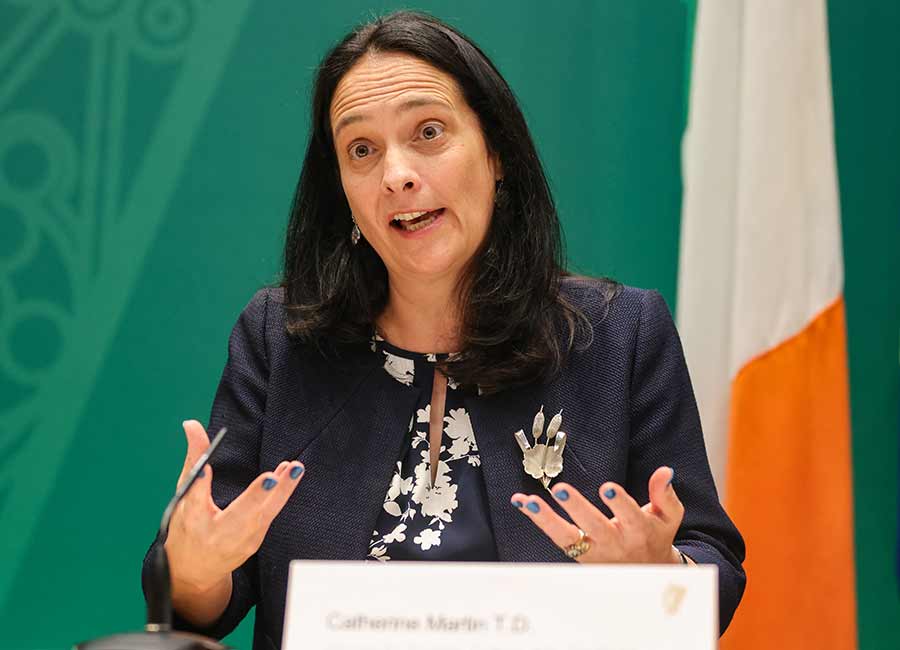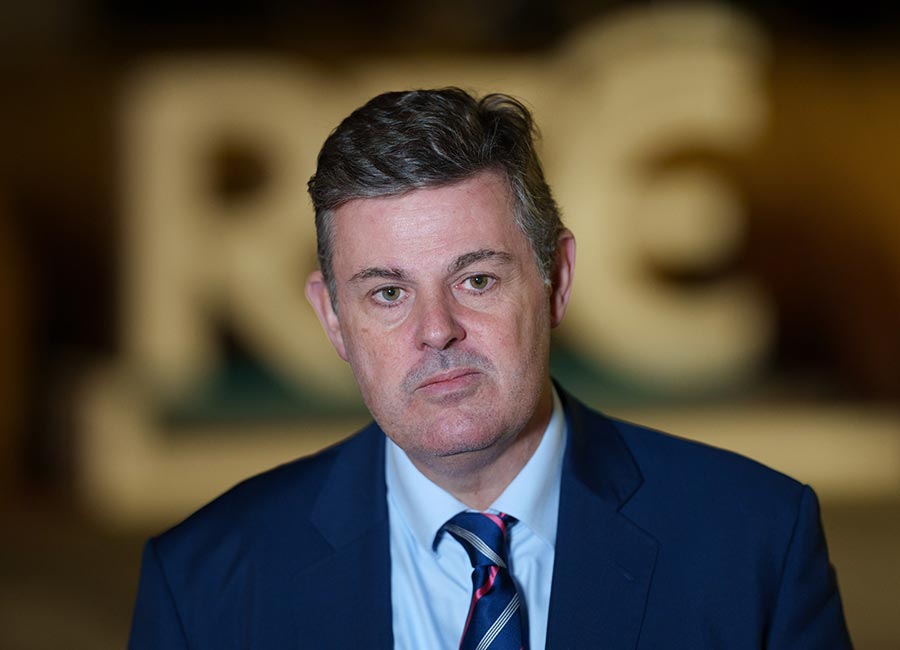Television licence sales have plummeted by almost €43m in the past five years, driven by RTÉ scandals and a fall in funding for collecting the fee, write Sarah McGuinness and Helen Bruce.
New figures show that as of the middle of this month, 758,316 people paid the €160 licence fee this year – amassing revenue of €121,330,560.
While the final tally for this year has yet to be accrued, total sales in 2024 are expected to be down on 2023 levels, when 824,278 people paid the fee, bringing in €131,884,480 for the broadcaster.
The drop in TV licence sales has been widely attributed to a series of financial scandals at RTÉ. But now fresh data shows the volume of people paying the fee was falling long before the revelation of ‘hidden payments’ to former RTÉ star Ryan Tubridy, with sales slipping each year since 2019.
Figures provided by Media Minister Catherine Martin show 1,025,534 people paid the TV licence fee in 2019 – totalling more than €164m. Payments for 2024 so far are trailing €42.7m behind 2019, with the decline in those paying the fee becoming more pronounced in the wake of recent RTÉ controversies.
The drop in sales also coincides with a fall in funding allocated to An Post, which is charged with collecting the licence fee. The postal service was allocated a high of €12m to collect the licence fee in 2018. This fell to €11.4m, before steadily declining to €8.4m in 2023.
Under Irish law, anyone with a television in their home or business must have a €160 TV licence. Those caught without one can face fines of up to €1,000. Even homes with a broken TV or equipment capable of receiving a signal, such as an aerial, satellite dish or cable, are required to hold a licence.
However, watching television on a computer, smartphone or other devices, like the RTÉ Player or streaming services such as Netflix, currently does not require a TV licence.
After several incidents of financial mismanagement at RTÉ came to light last year, the Government pledged to reform how the national broadcaster is funded. It is understood a slew of proposals, including axing the TV licence and delegating the task of collecting the fee to Revenue, were considered in talks.
However, neither of those proposals are expected to go ahead once a new government is formed in January, with the previous coalition announcing plans to keep the television licence, and to guarantee levels of funding for RTÉ through a system of direct Exchequer top-ups to licence fee sales.
The controversial plan for RTÉ funding – equated to a ‘blank cheque’ by opposition parties – will see the broadcaster receive €725m over the next three years. This includes €225m next year, €240m in 2026, and €260m in 2027, and factors in TV licence sales.
An Post has been allocated additional funds "for necessary collection system and technological improvements".
Roddy Doyle, a lecturer in the DCU School of Communications, said the funding plan fails to provide longterm security for the RTÉ.
"I think it buys time," he said in July. "It buys a degree of clarity for the next three years, but we still haven’t answered the longer term question of how do you place the funding of public service media – not just RTÉ as an institution, but public service media – on a secure footing for not just the next three years, but the next decade and the next century, basically, because that’s what matters."
Minister for Public Expenditure Paschal Donohoe said in August he was confident TV licence sales would improve. Challenged in the Dáil two months ago about the poor figures, now outgoing Media Minister Catherine Martin – who failed to keep her seat in last month’s general election – said there would be "improvements in collection and compliance to maximise revenue generation".
"She said: "TV licence receipts support not only RTÉ but also the wider broadcasting and independent production sectors… I continue to urge everyone who is required to do so, to purchase or renew their TV licence and enable the continuation of this important support."
The new TV licence figures come as RTÉ is already behind on its commitment to cut jobs after Government failed to sign off on the voluntary redundancy scheme. Last year, RTÉ announced plans to reduce staff numbers by up to 400 by 2028, with 40 voluntary redundancies to be signed off on in 2024.
But they have not been delivered due to delays in approving the scheme. RTÉ submitted plans in April, with Ms Martin approving the scheme in October.
However, the public expenditure minister raised issues with plans "several weeks ago" – and is demanding further "financial analysis" before he greenlights the programme. RTÉ has been discussing redundancies since November 2023, with director general Kevin Bakhurst saying RTÉ needs to move "urgently" to reduce headcount.
He said RTÉ was told on numerous occasions approval was "weeks away" before Government requested more information, adding delays were costing RTÉ "several million euro".

The coalition was accused of deliberately stalling approval until after the general election. An RTÉ source said it had been "left in limbo" while Government sources told the Mail that "politically sensitive" packages would be "better left" until after the election.
An RTÉ spokesman said Mr Bakhurst continues to engage with the Department of Media on amendments. Neither the Departments of Media or Public Expenditure could say when the scheme will be ready for approval.
Photo: RTÉ director general Kevin Bakhurst. (Pic: Fran Veale)










